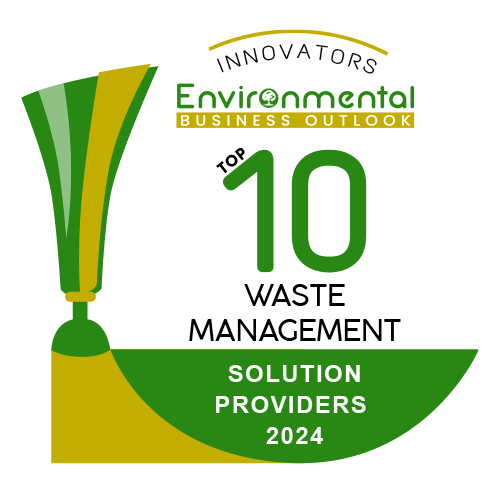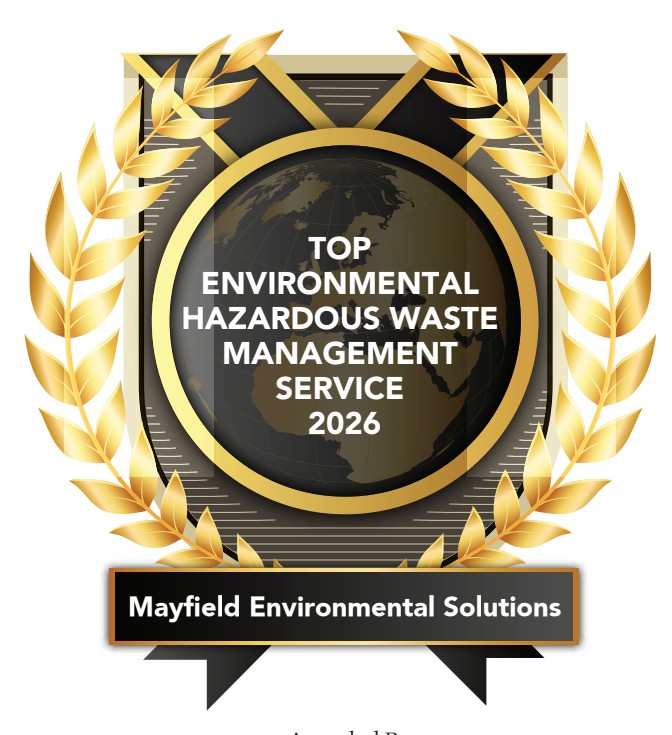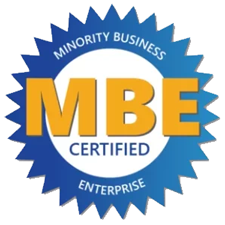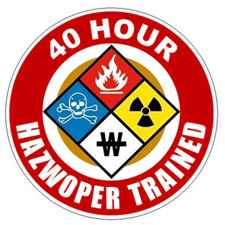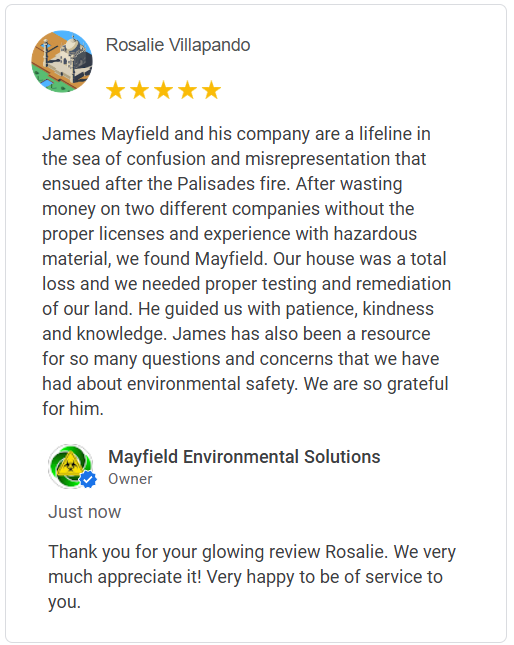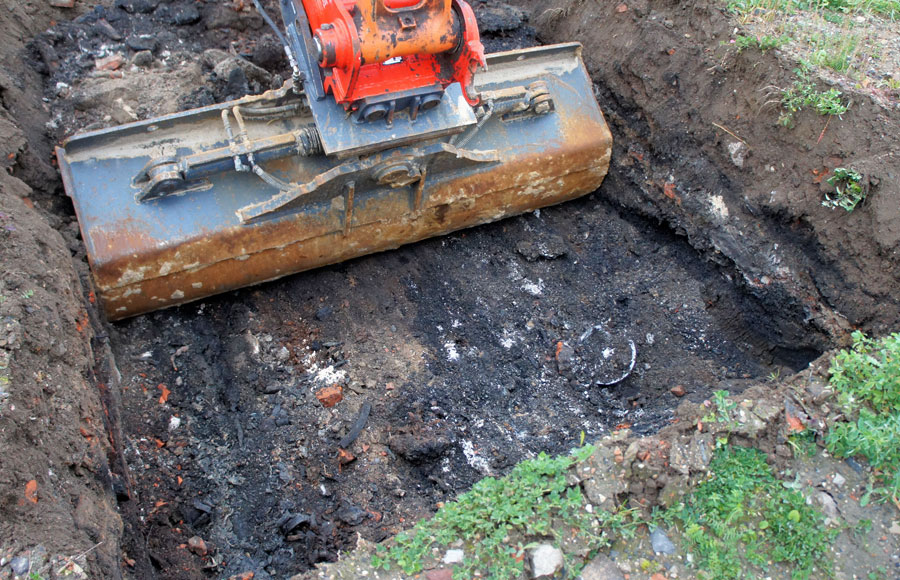
MALIBU, CA – Selecting qualified soil remediation experts is one of the most important decisions for developers and industrial clients managing contamination issues. Whether the project involves petroleum-impacted soils, heavy metals, industrial solvents or emerging contaminants, the effectiveness of remediation work depends on the expertise, assessment methods and regulatory knowledge of the professionals involved. Teams such as those at Mayfield Environmental Solutions approach these challenges with a focus on accurate assessment, method selection and adherence to environmental standards to ensure reliable outcomes.
This guide explains how to evaluate remediation contractors, what to look for during the project assessment phase, how soil contamination types affect method selection and why cleanup standards and compliance checks play a critical role in long-term environmental performance. Understanding these factors helps decision-makers choose specialists who can manage complex subsurface challenges with precision, safety and regulatory alignment.
Understanding the Role of Soil Remediation Experts
Soil remediation experts are environmental professionals who assess, diagnose and restore contaminated land. Their work supports project viability, regulatory compliance and future land use planning. A qualified team brings technical insight into subsurface conditions, contaminant pathways, risk exposure levels and the most effective remediation technologies for the specific site.
Experts also oversee sampling procedures, develop remediation action plans and coordinate compliance documentation. Their ability to interpret laboratory data, meet cleanup standards and design cost-effective strategies determines the success of the overall remediation process.
Why Selecting the Right Remediation Contractors Matters
Choosing the correct remediation contractors influences project cost, timeline and long-term site suitability. Many industrial and development projects fail to account for the complexity of subsurface contamination, leading to delays, redesigns or regulatory setbacks. An experienced contractor identifies early-stage risks, selects appropriate technologies and ensures that remediation work aligns with local and national regulations.
Contractors who specialize in contaminated land management understand soil heterogeneity, plume movement, groundwater interactions and the challenges associated with deep excavation or in-situ treatment. Their experience helps prevent costly revisions and supports accurate project forecasting.
Project Assessment: The Foundation of Effective Remediation
A thorough project assessment is the starting point for any soil remediation effort. This stage influences decision-making, budget allocation and technology selection.
Key Elements of a Comprehensive Project Assessment
A full assessment includes investigative sampling, a review of historical land use, determination of soil contamination types and evaluation of surrounding environmental receptors. Experts examine potential risks to groundwater, nearby developments, ecological habitats and workers on-site. They also review regulatory guidelines to establish appropriate cleanup standards for the project. These steps form the foundation of effective soil remediation services, ensuring that early decisions are based on accurate and comprehensive data.
Data interpretation is another important aspect of assessment. Remediation professionals compare analytical results with risk thresholds, calculate contaminant concentrations and determine whether the contamination is shallow, deep, widespread or localized. These findings directly shape the remediation plan.
Common Soil Contamination Types and Their Impact on the Project
Different soil contamination types require different methods, timelines and regulatory approaches. Understanding the nature of the contamination helps developers and industrial clients anticipate project needs.
Petroleum Hydrocarbons
Petroleum hydrocarbons are common near fuel stations, industrial zones, transportation hubs and older commercial sites. These contaminants often require soil vapor extraction, bioremediation or excavation depending on concentration levels and soil structure.
Heavy Metals
Heavy metals such as lead, arsenic, cadmium and chromium do not degrade naturally. Because they bind to soil particles, remediation may require stabilization, solidification or removal. These contaminants are often associated with industrial properties, manufacturing plants or legacy operations.
Chlorinated Solvents
Chlorinated solvents originate from industrial cleaning, degreasing or chemical manufacturing. Their mobility in groundwater creates additional challenges. In-situ chemical oxidation or reduction may be necessary to break down the compounds.
PFAS and Emerging Contaminants
PFAS compounds have become a priority due to their persistence. Soil remediation experts must apply advanced techniques, often involving sorbents, thermal treatment or excavation with controlled disposal.
Understanding these contamination types allows experts to design tailored strategies that address both soil and groundwater conditions.
Cleanup Standards and Regulatory Compliance
Meeting cleanup standards is essential for site closure, redevelopment approval and environmental stewardship. Soil remediation experts interpret regulations from environmental agencies and ensure that remediation work meets the required thresholds for human health, groundwater protection and ecological stability.
Compliance checks occur throughout the project. This involves confirmatory sampling, chain-of-custody documentation and reporting. Experts must demonstrate that remediation methods have achieved the targeted contaminant reductions. For industrial clients and developers, adherence to these standards ensures long-term project viability.
Comparison of Common Soil Remediation Methods
| Remediation Method | Suitable Contaminants | Key Advantages | Considerations |
| Excavation and Off-Site Disposal | Metals, petroleum, mixed waste | Fast removal and clear results | Higher cost and transport requirements |
| Soil Vapor Extraction | Volatile organic compounds | Effective for vapors and shallow impacts | Longer operating periods |
| Bioremediation | Petroleum hydrocarbons, organic pollutants | Environmentally sustainable and cost-effective | Limited for heavy metals |
| Chemical Oxidation | Solvents, VOCs, petroleum fractions | Rapid reduction of contaminants | Requires careful dosing and monitoring |
| Thermal Treatment | PFAS, solvents, resistant contaminants | High destruction efficiency | Energy-intensive |
This comparison helps project owners understand which techniques are best suited for their contamination challenges.
How to Evaluate Soil Remediation Experts
Selecting the right soil remediation experts involves careful review of qualifications, technical experience and project management capabilities.
Technical Experience
Experts should demonstrate experience with similar project scopes, contamination types and regulatory environments. Their past work should show a clear understanding of site-specific challenges, such as deep contamination, complex soil structures or sensitive ecological zones.
Assessment and Diagnostic Skills
Strong diagnostic skills ensure accurate characterization of contaminated areas. Experts must identify contaminant distribution, migration pathways and exposure risks. Their assessment process should be transparent and supported by defensible data.
Regulatory Knowledge
Remediation contractors must understand local cleanup standards, environmental regulations and permitting requirements. Their familiarity with compliance procedures contributes to reliable project outcomes.
Technology Proficiency
Soil remediation is continually evolving. The right experts remain updated on advanced treatment technologies, site monitoring tools and sustainable remediation practices. Their ability to select appropriate technologies ensures efficiency and accuracy.
Communication and Reporting
Clear communication is essential for developers and industrial clients. Experts should provide structured reports, regular updates and transparent explanations of data and timelines.
Long-Term Benefits of Working with Qualified Experts
Engaging with experienced remediation contractors offers long-term benefits. Efficient remediation helps reduce liability, protect groundwater resources and improve land value. In industrial or redevelopment projects, compliant remediation supports planning approvals and reduces the likelihood of future environmental issues.
Professional soil remediation ensures that the site is suitable for intended use and that the project remains aligned with regulatory expectations throughout its lifecycle. For more information or to discuss project requirements, you may contact Mayfield Environmental Solutions for guidance on suitable assessment and remediation options.
FAQ: Soil Remediation Expert Selection
What qualifications should soil remediation experts have?
Experts should possess environmental engineering or geology backgrounds, field experience with contaminated sites, and a record of managing regulatory compliance and remediation design.
How long does a typical remediation project take?
Duration varies based on contamination type, site conditions and chosen remediation technology. Some projects take several weeks, while complex sites may require months or extended monitoring.
Do contamination types influence the remediation method?
Yes. Each contamination type requires specific approaches. For example, petroleum hydrocarbons may be treated biologically, while heavy metals often require stabilization or excavation.
Why is a compliance check important during the project?
Compliance checks verify that remediation work meets cleanup standards. They confirm progress, document actions and provide evidence for regulatory approval.
What factors increase remediation costs?
Project costs increase when contamination is deep, widespread or located in sensitive areas. Additional sampling, regulatory complexity or advanced technologies may also influence cost.






